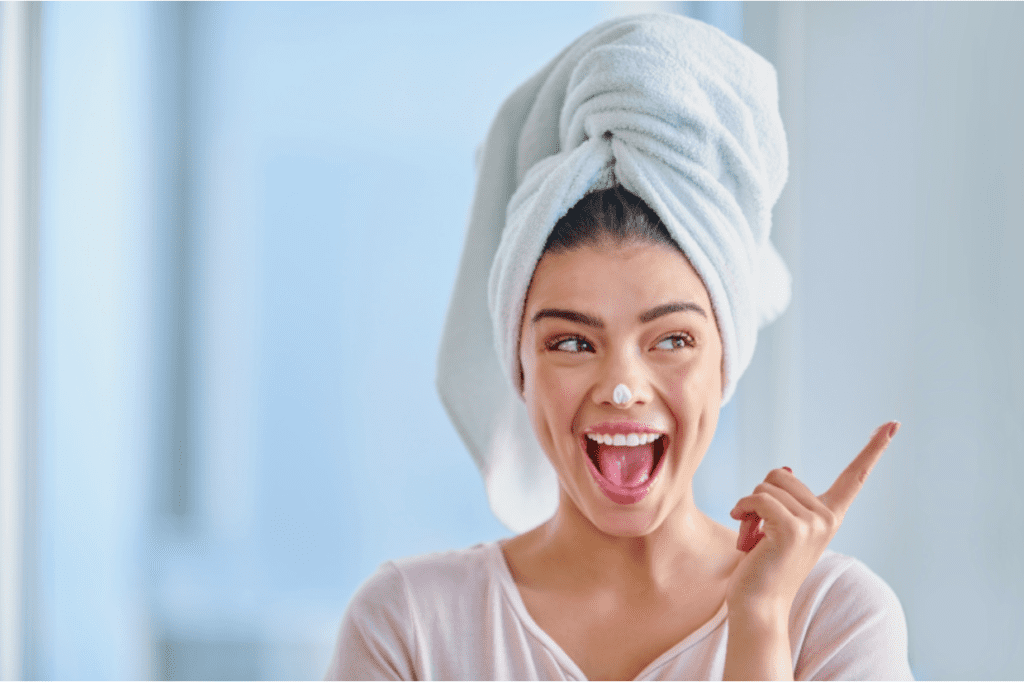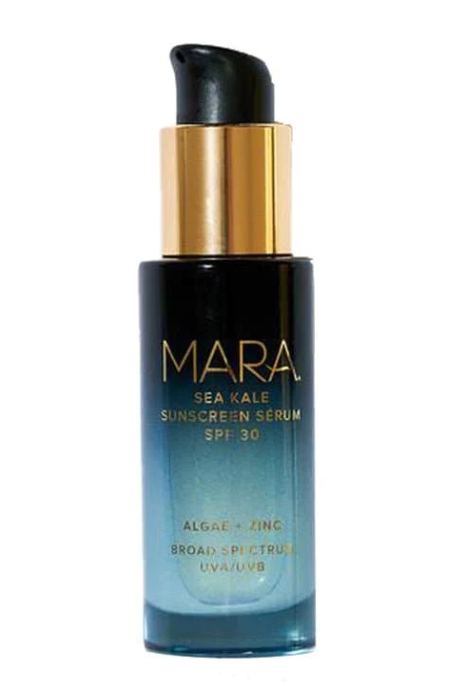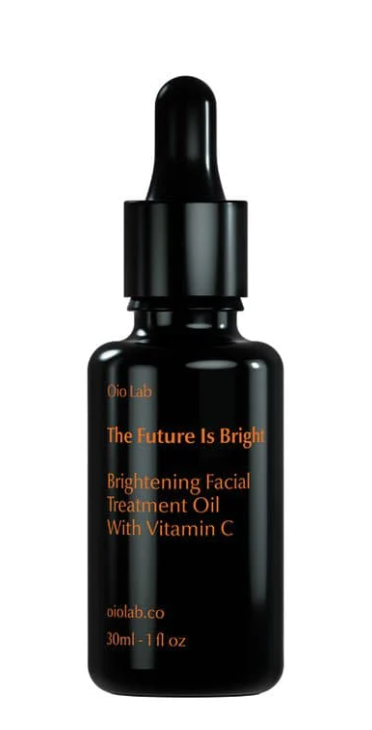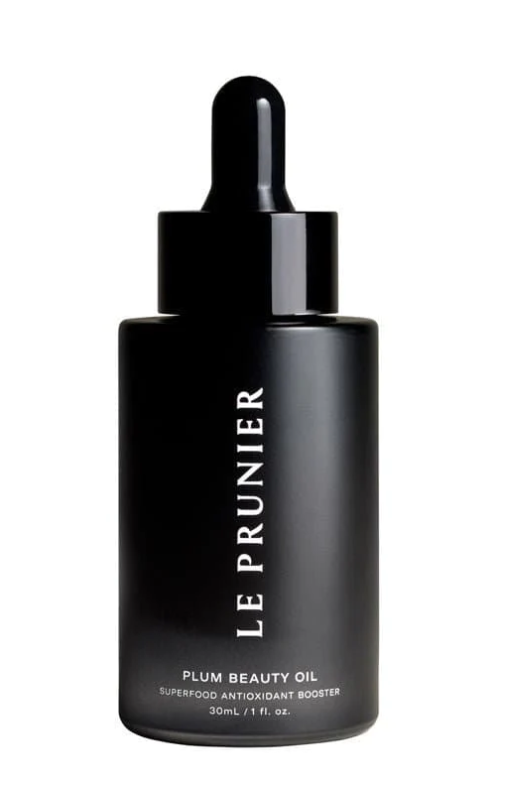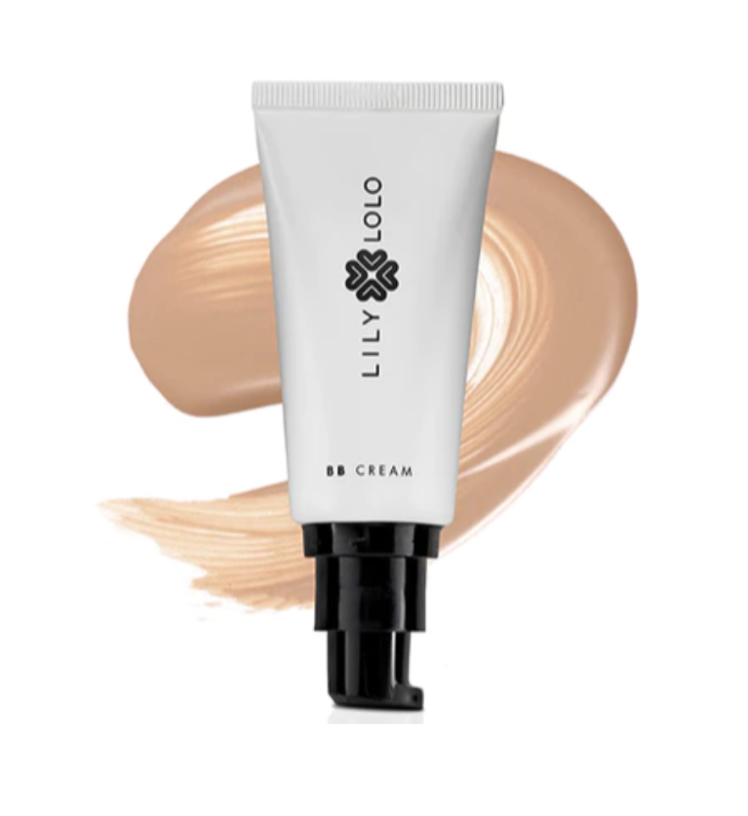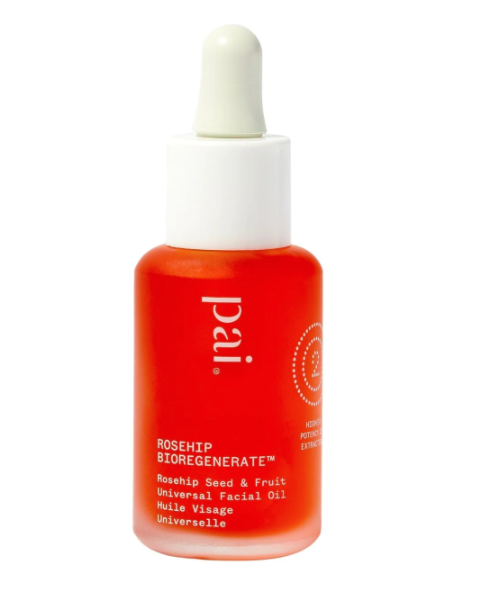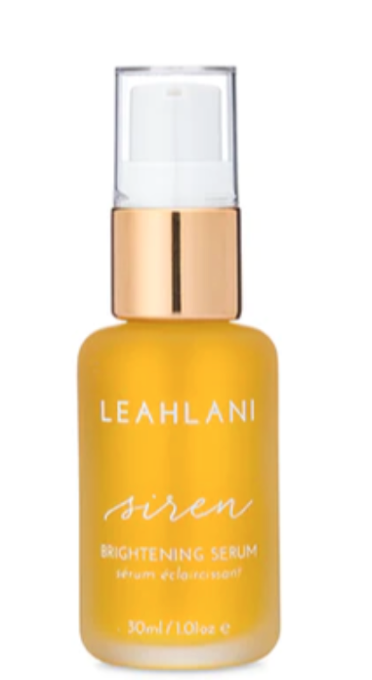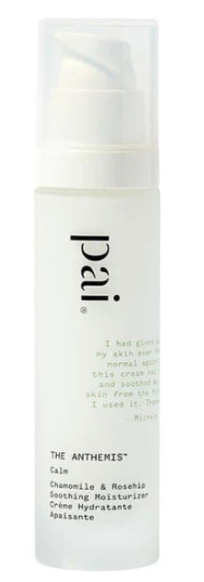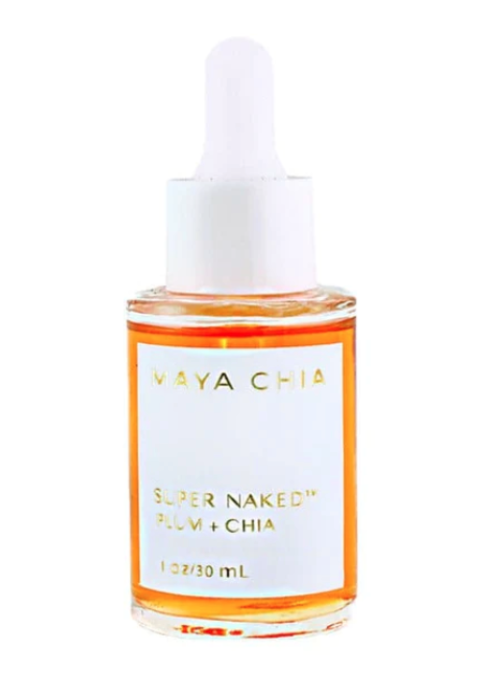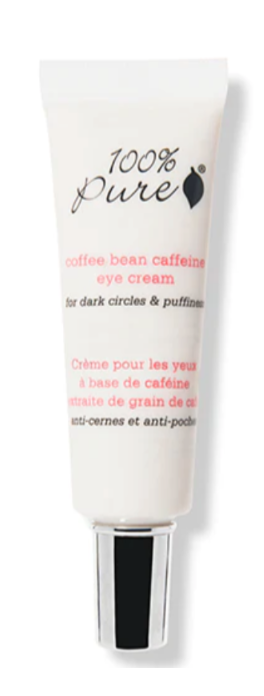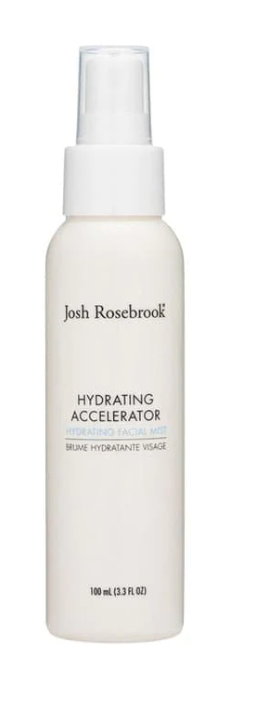Clean Skincare 101: The No B.S. Guide To Clean Beauty
This clean skincare 101 guide gives you all the info you need to build an affordable anti-aging skincare routine for any skin type with non-toxic products.
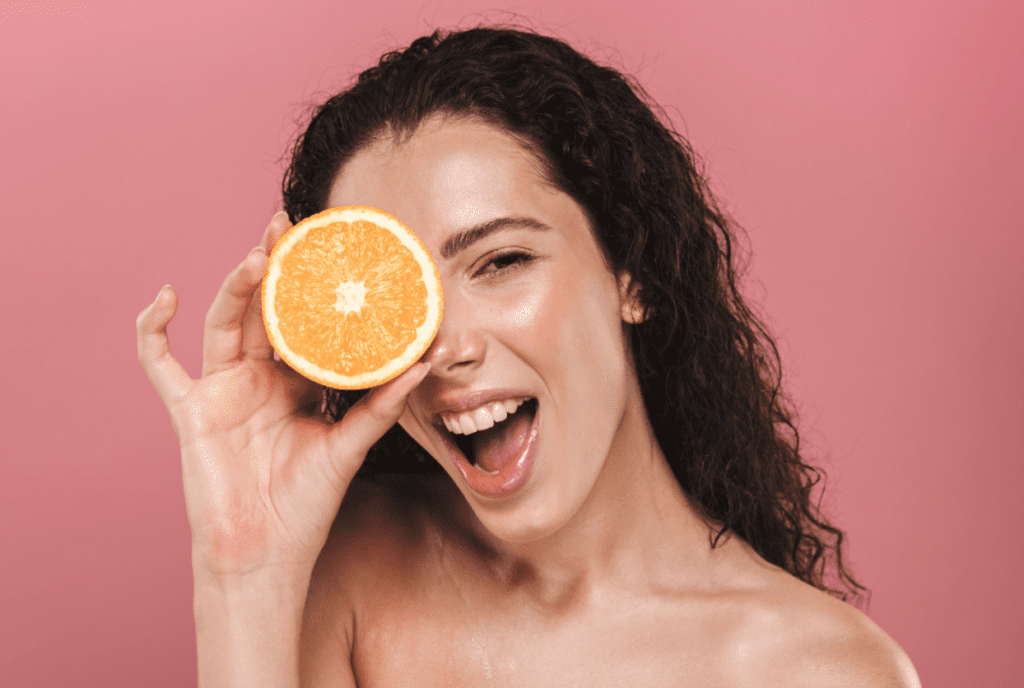
Are you tired of harsh ingredients like hormone disruptors and carcinogens in your skincare products? This clean skincare 101 guide offers tips for purging your beauty cabinet and choosing natural ingredient beauty products for maturing skin.
From ingredient lists that sound like a foreign language to companies hyping up their ‘clean’ claims, trying to find your way through the skincare jungle can feel overwhelming and frustrating. But you don’t have to subscribe to Goop and get a degree in chemistry to get the tea on clean skincare.
Instead, let’s talk about clean skincare and beauty without the B.S.
The Problem With Most Beauty and Skincare Products
Real talk…
After years of not seeing results, I decided to get down in the trenches and do some digging into the ingredient lists on my skincare products.
And my findings? Let’s just say it was an eye-opener.
Instead of high-quality ingredients that nurture our skin, many big brands knowingly dump toxins into their products. How are they able to do this? Lack of regulation.
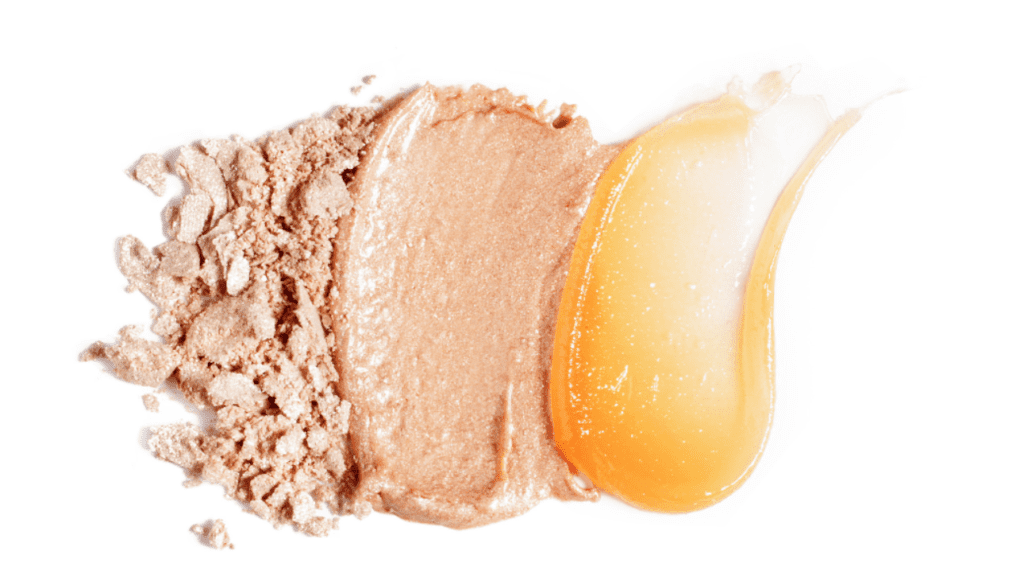
The laws regulating the beauty industry in the U.S. are desperately lacking, allowing companies to use whatever ingredients they please—even carcinogens like formaldehyde and other harmful preservatives.
That’s why I’m obsessed with sharing ethical, clean beauty options with clinically proven natural ingredients (especially for those of us with maturing skin—there’s a lot at stake!)
What Toxic Ingredients Lurk In Common Skincare Products?
Take a long, hard look at the Campaign For Safe Cosmetics’ website for a thorough list of common toxic ingredients. Your brain might be rattled when you see how many toxic chemicals are in our products, but that’s good—it’ll motivate you to pursue a more natural lifestyle.
Talc
Let’s start with an example of a toxic skincare product you may be familiar with—talcum-based baby powder. Today, Johnson & Johnson has racked up an estimated 38,000 lawsuits from consumers claiming its asbestos-contaminated talc products caused cancer.
The scariest part? Researchers have known for decades that talc is a dangerous ingredient.
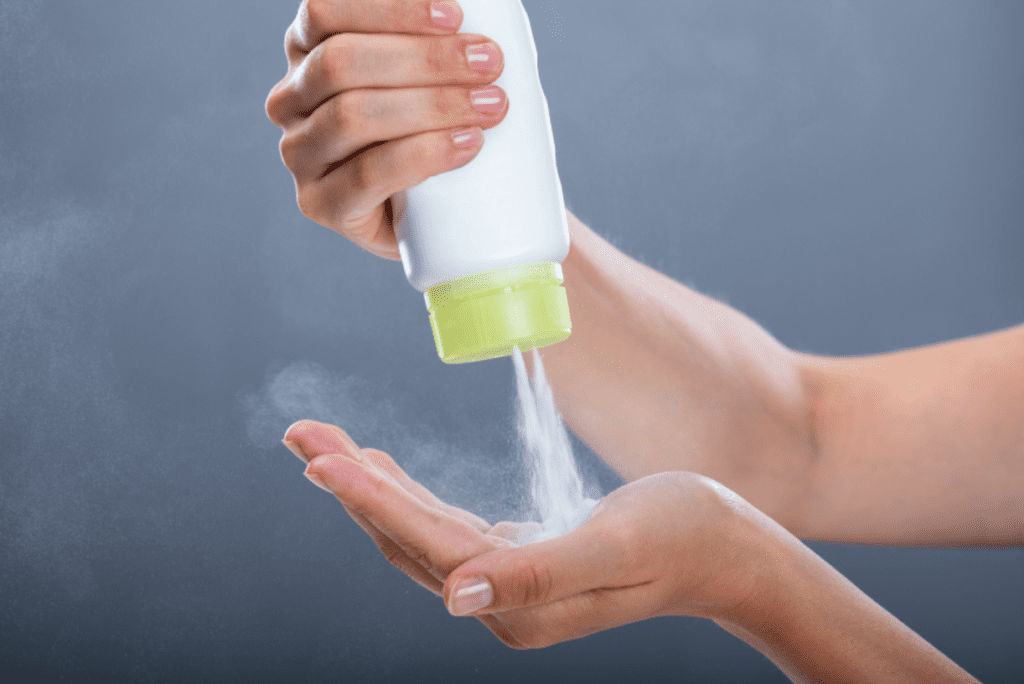
- In the 1970s, researchers began investigating whether talcum powder was linked to an increased risk of ovarian cancer after discovering talc particles in ovarian cancer tissue.
- By the 1990s, when a group of scientists from Harvard School of Public Health conducted a meta-analysis of 16 studies, they found a link between talcum powder and ovarian cancer.
- In 2009, the FDA began investigating the safety of talc in personal care products. Since then, the federal agency has found that some talc-containing products have been contaminated with asbestos, a known carcinogen.
- It wasn’t until 2020 that Johnson & Johnson announced it would end sales on talcum-based baby powder in the U.S. and Canada, and…
- It wasn’t until 2023 that it ended sales worldwide!
This is one narrative of many surrounding the junky toxins in most beauty and skincare products. Here are some more junk ingredients that are KNOWN to be harmful to humans that you’ll want to add to your AVOID AT ALL COSTS list.
Carbon Black
Carbon black is a black powder used in mascara, eyeliner, and lipstick products. It’s a known carcinogen with links to cancer and adverse effects on organs.
DEA, MEA, TEA
Diethanolamine (DEA), Monoethanolamine (MEA), and triethanolamine (TEA) are widely used in cosmetics as emulsifiers or foaming agents. But they can be contaminated with nitrosamines, which can cause cancer when absorbed through the skin.
1,4-Dioxane
This chemical, commonly an UNLISTED ingredient, is a byproduct of the chemicals that combine to form suds. It’s a carcinogen linked to organ toxicity and an increased risk of cancer.
Formaldehyde
Just—no. Run for the hills if you see the word “formaldehyde” or “formaldehyde-releasing preservatives” on an ingredient label. This is a known carcinogen common in personal care products like shampoos and liquid soaps that can cause skin irritation and allergic reactions.
Fragrance
It’s always best to avoid products with the generic “fragrance” listed on their label. This catch-all term can contain hundreds of undisclosed chemicals and toxins that can cause allergic reactions, hormone disruption, and even cancer. It just begs the question—what are you hiding behind the catch-all term “fragrance?”
Ethoxylated Agents
These petroleum-based ingredients are added to many personal care products as thickening agents and emulsifiers. But, unfortunately, they can be contaminated with known carcinogens like 1,4-dioxaneylene oxide.
Hydroquinone
This is a skin-lightening agent also found in skincare products marketed as “anti-aging” or “brightening” and can cause irritation, dryness, and even premature skin aging. In addition, long-term use has been shown to damage liver and kidney function.
Octinoxate
This chemical is found in sunscreens, lipsticks, and other cosmetics and products that contain SPF. It’s an endocrine disruptor linked to thyroid problems and other hormonal issues.
Parabens
These preservatives prevent the growth of little microbes and are found in most conventional beauty products, from moisturizers to shampoos. Unfortunately, they’re linked to an increased risk of breast cancer and can disrupt the endocrine system.
Phthalates
Pronounced THAL-ates, these nasty little compounds are commonly found in fragrances and nail polishes. They’re endocrine disruptors linked to reproductive problems, cancer, and asthma.
Refined Petroleum
This is a byproduct of crude oil used to soften and moisturize the skin but can be contaminated with carcinogens like benzene. It also clogs pores, leading to breakouts and other skin problems.
Titanium Dioxide
Titanium dioxide is a common ingredient in many mineral-based cosmetics, like foundations and sunscreens. Unfortunately, it’s linked to skin irritation and cancer when inhaled.
My God—What Do I Do Now?!

Don’t panic and start tossing everything on your vanity table in the trash—yet. Instead, sit with the knowledge that you want to change your purchasing behavior going forward and make a valiant effort to avoid these ingredients in the future.
Now that you’re aware of some of the nasties lurking in beauty products, it’s time to learn about what to look for instead—enter the Clean Skincare movement.
What Do “Clean Beauty” and “Clean Skincare” Actually Mean?
Put simply, clean beauty is a movement focused on creating products with fewer ingredients, more natural sources, and less environmental impact. Clean skincare means finding non-toxic and natural skincare products free of known toxins like the ones listed above.
The truth is that until we have more guided regulations in the cosmetics industry, it’s up to us as consumers to do our own research and make informed decisions about what passes the clean beauty and clean skincare standards test.
Here are some qualities to consider when deciding whether a brand qualifies as “clean.”
Uses Botanical Skincare Ingredients
If it originates from plants (herbs, roots, flowers, fruits, leaves, or seeds), it’s botanical. The clean skincare movement is focused on natural ingredients that have been used for centuries to protect and heal our skin.
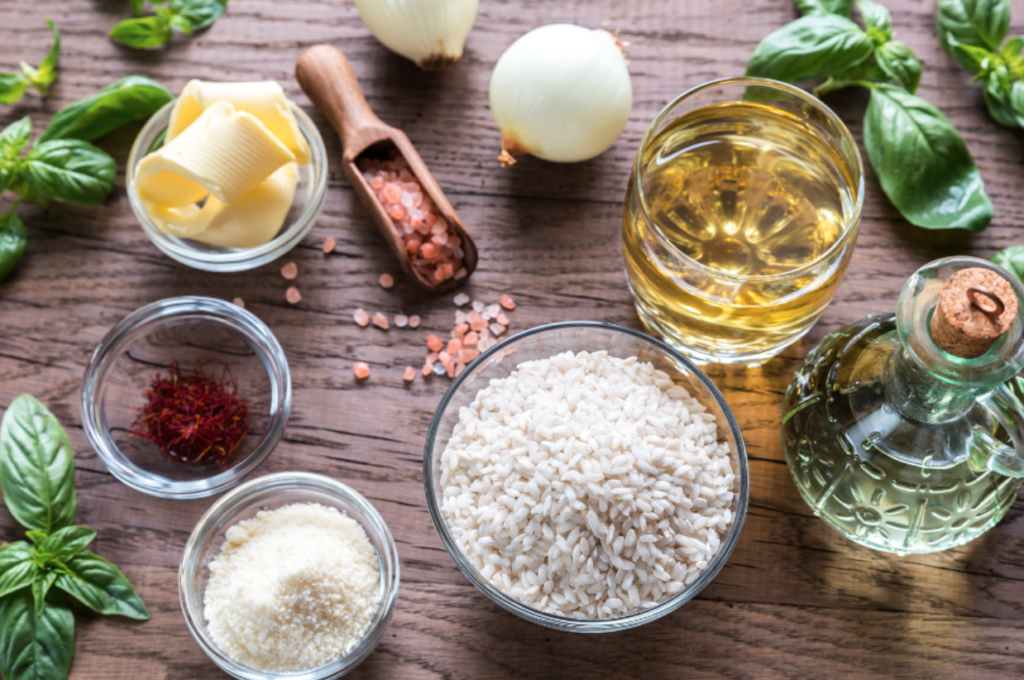
Ingredients like honey, aloe vera, rosehip oil, green tea extract, and other plant-based oils provide antioxidants and vitamins to your skin while helping to keep it hydrated.
Avoids Animal Testing
According to a survey among the 50 largest cosmetic brands in the world, 88% of them are not cruelty-free. True clean skincare brands never test their products on animals and are cruelty-free.
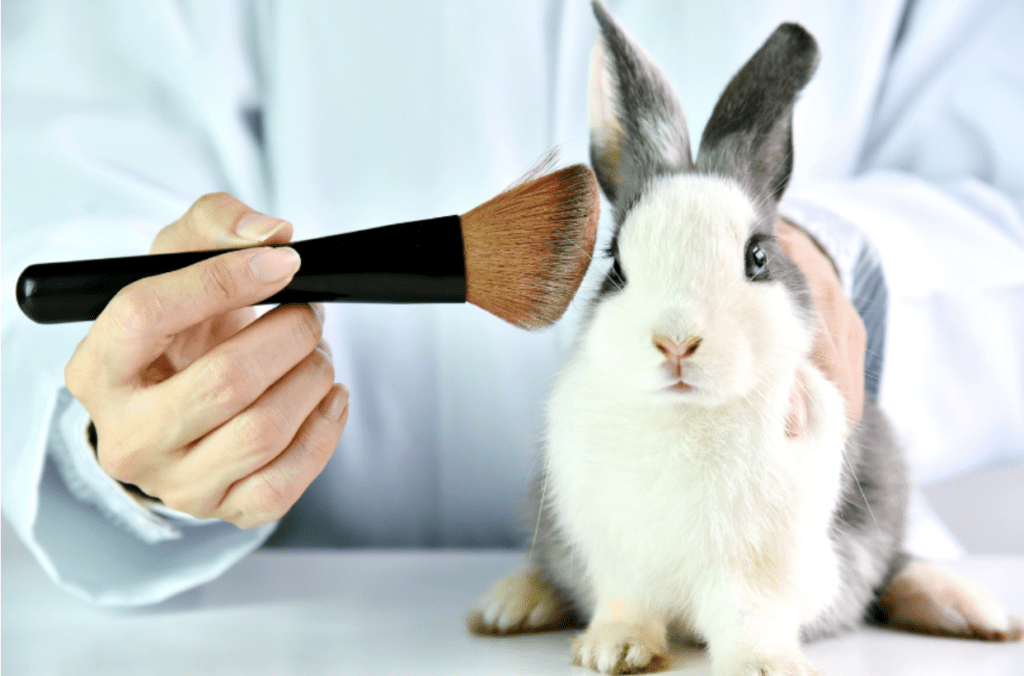
So make sure to check the label on any product you’re buying to see if it states that they do not engage in animal testing.
Makes Environmental Considerations
Excessive packaging, plastic pollution, and unsustainable resource consumption are huge problems within the cosmetic industry. Beauty packaging alone amounts to 120 billion units of waste each year.

Responsible, clean beauty companies strive to reduce waste, use recycled and recyclable packaging, and create products free of toxins like the ones listed above.
Don’t Fall For Greenwashing
Just because something calls itself “green,” “natural,” or “sustainable” doesn’t mean it’s automatically safe.
If you’ve ever made a purchase simply because a brand made these claims (I’ll admit—before I started researching products full-time, I fell for this one!), you may have been a victim of Greenwashing.
Greenwashing is when a company markets its product as green or natural when it’s not. Companies can use clever marketing tactics to make you think the product is safer than it actually is.
Be sure to check out the ingredient label and look for certified organic and non-toxic ingredients before you purchase.
Do your research and read labels carefully so you know exactly what ingredients are in the products you’re using. Look for certifications that help lend some credibility to the company’s claims like these ones.
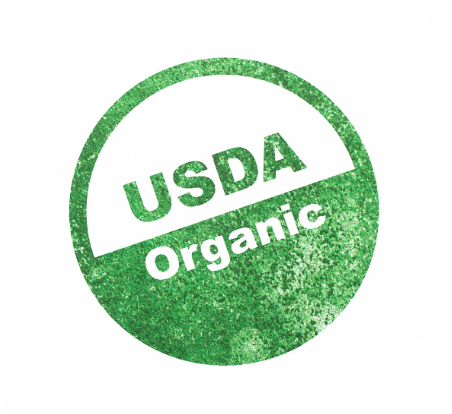
- USDA Organic – Products must contain at least 95 percent of organically produced ingredients.
- Made Safe – Meets regulations set by Made Safe (a non-toxic certification agency) that ensure products are safe for your skin and environment.
- FSC – Ensures that products and packaging come from responsibly managed forests that provide environmental, social, and economic benefits.
- Certified Cruelty-Free – ensures a product was created from top-to-bottom without harming or killing an animal.
- B-Certified Corporation – This signifies that a company meets B-Corp’s social and environmental performance standards.
Clean Skincare & Clean Beauty Brands We Trust
More brands are jumping on the clean beauty movement and creating high-quality, safe, and non-toxic products.
Some of our favorites are:
- Josh Rosebrook – integrity-founded skin, hair, and body care company on a mission to strengthen skin health and support the vitality of the person within.
- Kari Gran – Natural, clean, organic skincare that nourishes and hydrates skin. Poured by hand in small batches, cruelty-free, and 100% plastic free.
- Fitglow Beauty – organic, cruelty-free, gluten-free, vegan makeup and skincare made with plant-based ingredients.
- PAI Skincare – Organic, Cruelty-Free & B-Corp Certified. Powerfully kind, certified organic skincare for sensitive skin.
- Maya Chia – a clean beauty brand focused on formulating the future of skincare and beauty routines for just about anyone.
- Bluh Alchemy – This brand has come to be recognized as a leader in potent plant alchemy with formulas that preserve and protect skin.
- Mara – a line of non-toxic, clean, natural algae face oils, face masks and cleansers created by founder Allison McNamara
- Alpyn Beauty – The only brand to hand-harvest wild plants from Jackson Hole, Wyoming and infuse them into skin care products.
Tips For Building a Non-Toxic Anti-Aging Skincare Routine On A Budget
I get it—switching to clean beauty can be an expensive endeavor. But don’t let a tight budget stop you from achieving your health and beauty goals.
Here are a few tips for building a clean skincare routine on the cheap:
1. Start with just one product
You don’t need to buy the whole line of products at once. Instead, pick one new, clean product and work your way up from there. Minimalist skincare routines are easier to stick to in the long run, anyway.
2. Stick to multi-use products.
Look for skincare items that can double as multiple products, like an oil cleanser or a balm moisturizer that works as both a cleanser and moisturizer. This is one of my favorite ways to save a few dollars without sacrificing quality.
3. Take time to meet with a skincare consultant.
There are so many skincare trends and anti-aging buzzwords that get thrown around these days, how’s a girl supposed to know what they all mean? That’s what experts like me (Hi, I’m Mary) are here for. Stop throwing money away on products hoping they work—if you have skincare goals, let an expert help you meet them.
Learn more about how to build a killer, affordable clean skincare routine here.
Clean Skincare 101: Best Products To Get Started (By Skin Type)
Mature Skin
Mara Sea Kale Sunscreen Serum – $52
The Sea Kale Sunscreen Sérum is a daily hydrating sunscreen face oil. This lightweight algae and zinc formula protects against UV exposure while also providing the feeling of more hydrated skin thanks to blue sea kale, hemp seed, and moringa rich in vitamin C.
OIO Lab – The Future is Bright Vitamin C Oil – $35
Oio Lab’s the Future is Bright Vitamin C oil uses a potent, shelf-stable Vitamin C compound blended with borage, milk thistle, rose, and other nourishing oils. The result? You can use a sumptuous Vitamin C oil in the evening for radiant, age-defying skin.
Dry Skin
Le Prunier – Plum Beauty Oil – $20
Le Prunier’s Plum Beauty Oil is an ultra-nourishing testament to the fertile soil of Northern California. Grown, pressed and bottled at the Taylor family farm, Le Prunier’s plum seed oil leaves the skin feeling soft, hydrated, and blemish-free.
Lily Lolo B.B. Cream – $22
Lily Lolo’s B.B. Cream is vegan, cruelty-free, and totally transformative. This anti-aging B.B. Cream offers light coverage, sun protection, and hydration on its own or under your makeup.
Oily Skin
PAI Skincare – Rosehip BioRegenerate Oil – $29
Rosehip is one of those miracle skincare ingredients I’m always looking for. Pai Skincare packed this rich serum with rosehip seed extract, rosehip fruit extract, vitamin E, and Rosemary leaf extract for an age-defying dose of moisture that doesn’t clog pores. Perfect for your evening routine.
Leahlani: Siren Brightening Serum – $48
If you’re looking for an organic serum that will help freshen and tone your skin as it heals from U.V. damage, this one’s for you. It’s even bursting with Vitamin C to protect and strengthen collagen in the skin to soften wrinkles and enhance your youthful look.
Sensitive Skin
The Anthemis Chamomile & Rosehip Soothing Moisturizer – $59
The Anthemis Soothing Moisturizer, formerly Chamomille + Rosehip Calming Day Cream, features chamomile and rosehip to help calm the appearance of reactive redness and help repair damaged skin while gently hydrating.
Maya Chia Super Naked Face Oil – $70
Less is more in this stripped-down formula that centers on four synergistic ingredients and no essential oils. Super Naked Face Oil embraces the potency we love from Maya Chia tailored for sensitive skin types, those who are sensitive to scents and anyone who appreciates fewer/better certified organic ingredients and elegant sustainability.
Combination Skin
100% Pure – Coffee Bean Caffeine Eye Cream – $29
It doesn’t matter how much water I drink – fighting those under-eye bags is a constant battle. Fortunately, I discovered 100% Pure’s Coffee Bean Caffeine Eye Cream.
This miracle eye cream uses caffeine from coffee, cherry, and green tea to de-puff and improve circulation and is a potent combination of vitamins and antioxidants for an age-defying punch.
Josh Rosebrook Hydrating Accelerator – $35
Looking for a product that does it all? Look no further than Josh Rosebrook’s Hydrating Accelerator. This versatile spray is formulated with an impressive list of super-nourishing ingredients, including aloe vera, carrot seed, ginkgo, papaya leaf, and turmeric.
This product goes beyond the call of duty for a toner to hydrate your skin, reduce inflammation, and provide year-round relief from the elements.
More Clean Skincare 101: Continue Your Clean Beauty Journey
Want to see even more clean skincare products from brands that you can trust? Check out our roundup of 50 Clean Minimal Ingredient Skincare Products for more.
